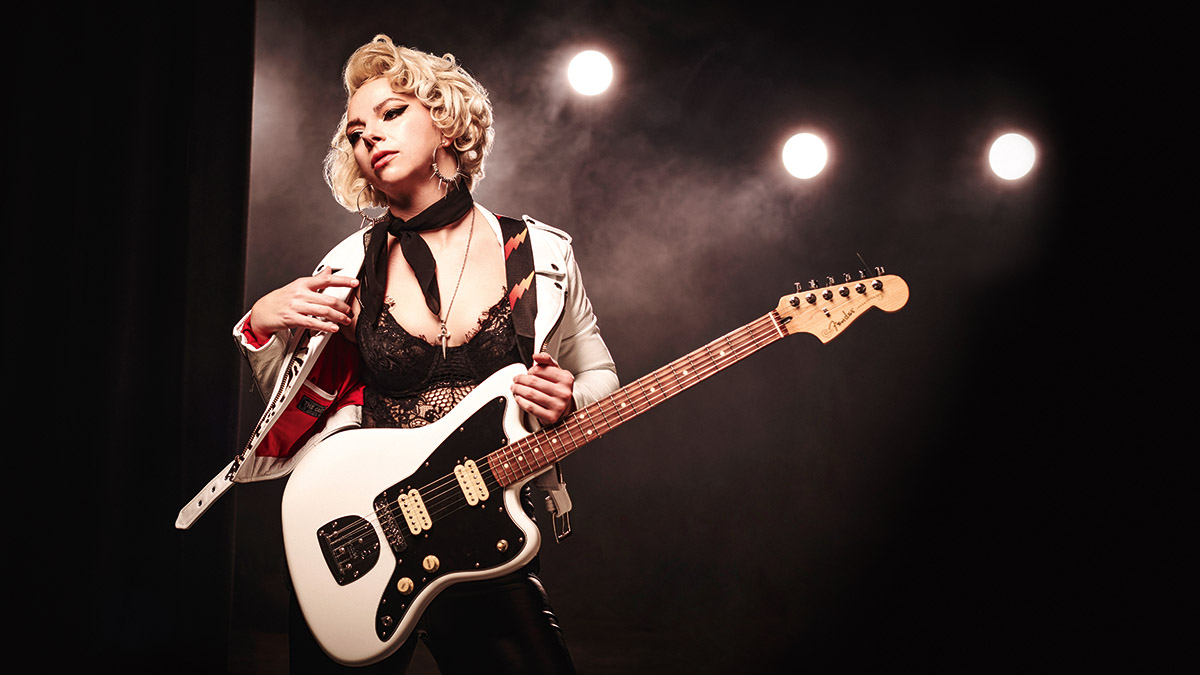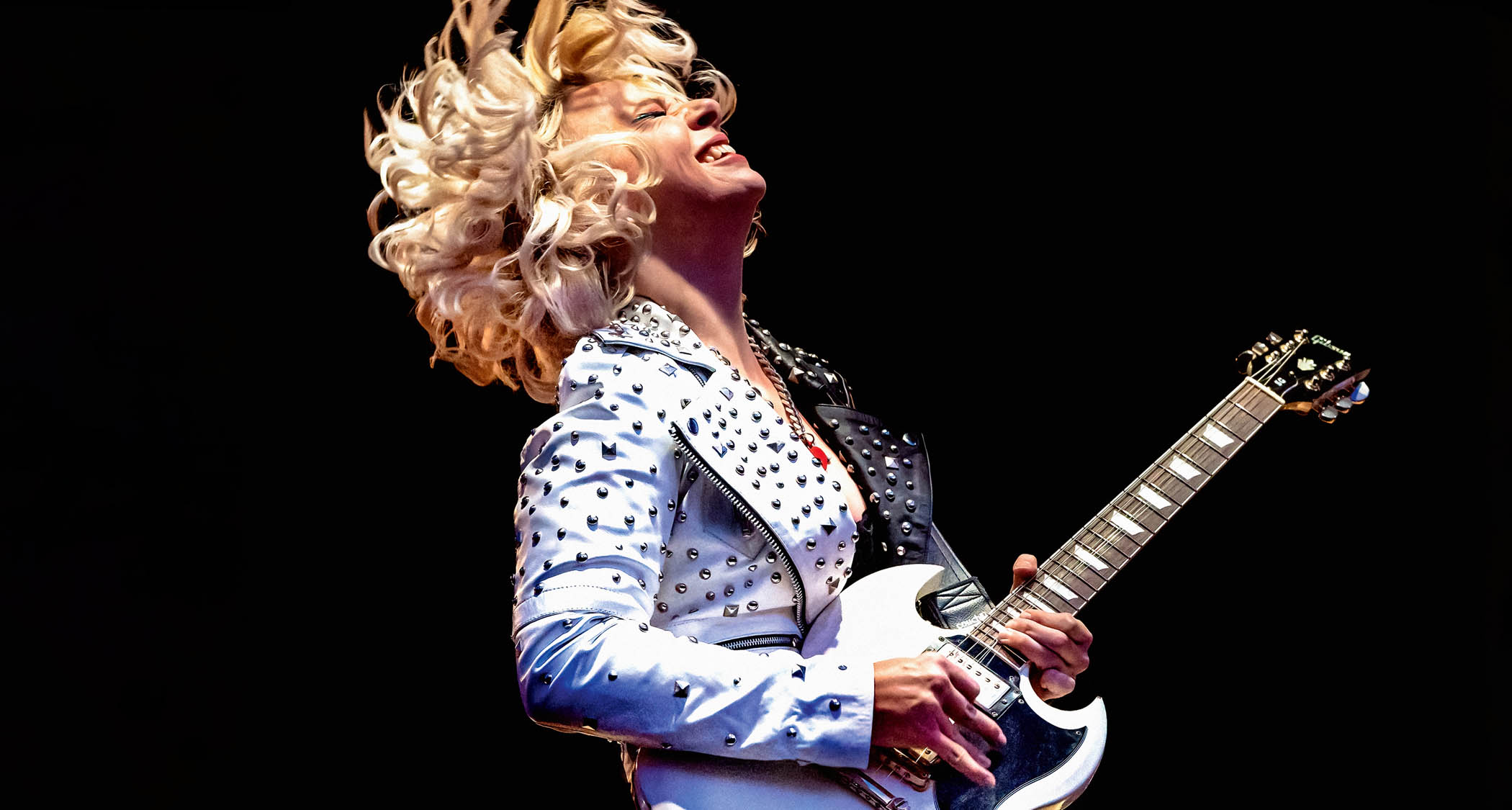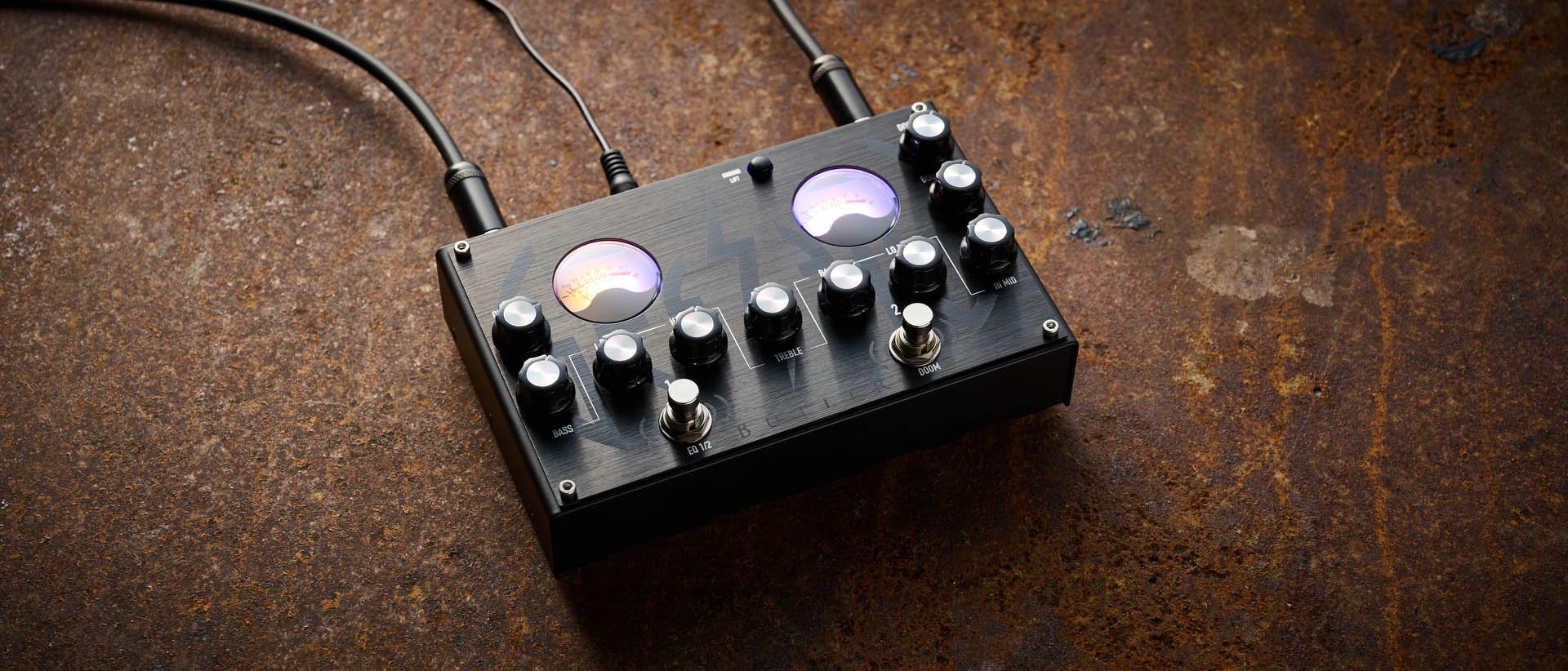“Ranking guitar players is tough for me… Being a guitar player is all about self-expression”: Samantha Fish on the magic of 335s, “best” players – and why the North Hill Country Delta blues is a bottomless well of inspiration
With her latest studio release, Paper Doll, the Kansas City blues rocker bottles the energy of life on the road and goes in search of hooks, hooks, hooks

Fortune hasn’t just been smiling on blues rocker Samantha Fish lately – it’s been sending her long-stemmed roses and leaving love notes on her windshield.
The Missouri-born guitarist/vocalist grabbed the top spot on Billboard’s blues chart in 2023 for Death Wish Blues (a collaboration with Jesse Dayton), and 2024 found her opening for the Rolling Stones and joining forces with Slash on the latter musician’s multi-artist blues tour, the S.E.R.P.E.N.T. Festival.
Fish bottled some of that magic on her most recent release, Paper Doll. She and her road bandmates – keyboardist Mickey Finn, bassist Ron Johnson and drummer Jamie Douglass – recorded the album between gigs on tour.
“For the record to come out when we wanted it to come out, recording on the road was really the only choice, because our touring schedule was just bananas last year,” she says. “I don’t use the word ‘bananas’ lightly, by the way.
“I felt like we had set ourselves up for this impossible task, but thanks to the dedication of my producer Bobby Harlow and the willingness of the band, we were able to make it happen. I feel like it worked out really well, because the band was fully primed from gigging.”
Paper Doll finds Fish at her most stylistically wide-ranging. Influences like Jack White, AC/DC, ZZ Top and Led Zeppelin bob up on standout cuts such as Rusty Razor, Can You Handle the Heat?, I’m Done Running and the ghostly, quasi-mystical Fortune Teller. Meanwhile, Lose You proves that Fish can wail with the best of gospel, soul and R&B singers.
One of the strongest showcases for Fish’s guitar playing on the album is Sweet Southern Sounds, a slow-burning pop-blues number with a riff that’d make AC/DC’s Have a Drink on Me blush with fatherly pride.
All the latest guitar news, interviews, lessons, reviews, deals and more, direct to your inbox!
Fish imaginatively ornaments the chord changes of the final chorus with some string-skipping intervallic leaps. This gives way to a bit of menacing feedback that heralds the arrival of one of Paper Doll’s most vibrant solos.
“That’s the good thing about Gibson ES-335s,” Fish says. “Those guitars just want to scream the second you plug them in. If you stand within five feet of an amplifier and turn it up halfway, it wants to feed back.”
Fish used open-G tuning on I’m Done Running and drop-D on Fortune Teller. She says she and her band recorded Lose You in standard tuning, “but I also used a Stogie Box Blues four-string cigar box guitar and layered over it. We play that song in open A now because I’ve had to adjust for the live show.”
She adds that the cigar box “wasn’t a prominent feature on this record. Usually I have one song that showcases the guitar on its own, but this time I just used it for a subtle bed layer underneath things. It’s got a really thick, aggressive tone.”
Besides offering more insights on tech and technique, Fish gave us her thoughts on her process and the state of the blues in 2025.
Paper Doll is a great riff album. What’s your process for coming up with riffs?
“For this album in particular, I started every song with almost a Hill Country-inspired riff. I think that’s most evident on Sweet Southern Sounds – it’s got this kind of Junior Kimbrough-esque feel to it – but then there are songs like Lose You that are a little less obvious because of the production and the layering. I started with an acoustic guitar on that song and was using [a technique where you] lay a drone down with your thumb and do something melodic on the higher strings.
“That’s kind of where I was starting with every song on this record. I think Paper Doll fits that world as well. Fortune Teller has that same sort of feeling to it. I think most of the songs started with that kind of riffing, and then I built a melody around it.”
Tell me about the gear you used on this album.
“Oh, God! [Laughs] I don’t know why I don’t take pictures! I think because I’m so focused on the music and getting everything done, I forget to take pictures of all the gear we use.
“But I used a Fender Deluxe on almost every song and rhythm track. I feel like they’re just really versatile amps, and you can get this great crunch out of them. If it’s a good amp, you don’t have to try terribly hard. I know I used an old Supro at one point, which was cool. As far as guitars, I used my SG a lot, which is kind of my go-to.

“I could only bring in so many guitars to the studios because we were flying in for a lot of these sessions, so I got my cigar box in, but then I used a lot of the guitars that were in the studio. When we were in L.A. and recorded at Savannah Studio, they had some really cool, funky guitars, and we’d cycle through them and say, ‘What sounds and feels good?’
“By the time we landed on one and hit ‘record,’ I wasn’t even registering, ‘Maybe I should take a picture of this so that someday when I’m doing an interview I know what I'm talking about!’ [Laughs] I know we used 335s, Les Pauls and Telecasters. We had a great arsenal to choose from.”
Tell me about singing and playing lead at the same time. Is that something you put a lot of practice into?
“It can be difficult. It’s one thing to hear it on a recording, because – spoiler alert – usually you’re not singing and playing lead at the same time in the studio, so to then figure out how to do that onstage can be a bit of a challenge.
“Rhythm guitar and singing is a little easier for me, because usually I write parts where the rhythm’s not going against the vocal so much. But that’s a challenge. It makes you a better musician when you set the bar really high on a record: ‘Okay, now I have to go nuts on the guitar and somehow still sing this vocal with conviction.’
“It can be a bit like where you pat your head and rub your stomach at the same time. You’re doing things that are kind of counterintuitive, but practice, practice, practice, and eventually that muscle memory clicks into place.”
You have a knack for writing bluesy-sounding songs that don’t follow the traditional 12-bar blues structure. Is that deliberate?
I’m always looking for hooks. That’s really where I start when I’m writing: how can I make something that people want to listen to and is infectious?
“My goal is just to write songs. I feel like I’m rooted in the blues. It’s how I learned how to play guitar. It’s what speaks to me and inspires me. To this day, I feel like North Hill Country Delta blues is such a deep well that I return to year after year for inspiration. It continues to push me forward. I feel like I’m never really trying to write a blues song – I’m just trying to write a good song.
“I’m always looking for hooks. That’s really where I start when I’m writing: how can I make something that people want to listen to and is infectious? I usually start with the melody and then build around that. To me, the blues is something that just comes naturally.”
Who do you think some of the best modern blues players are?
“I just got off the road with Kingfish, and he’s pretty amazing. I think Derek Trucks is one of the greatest there is, not just in blues playing but any playing. He’s an alien. I like Gary Clark Jr. – he’s very tasteful, and he’s got a great tone. Eric Gales is incredible. He just blows everybody away. Luther Dickinson is one of my favorite contemporaries, too. He’s awesome.”
You’re counted among the best contemporary blues players, and Total Guitar ranked you as the 38th greatest blues player ever. What’s your take on that?
“That’s crazy and a big honor. I feel like being a guitar player is all about self-expression, so when you’re ranking guitar players, it’s tough for me, because I don’t think there’s one better way to do it.
“There are obviously people who are technically light years down the road from me, but I think when it comes to self-expression, it’s hard to rank them. I’m just trying to do what I can and what I know and get better at what I do.”
- Paper Doll is out now via Rounder.
- This article first appeared in Guitar World. Subscribe and save.
You must confirm your public display name before commenting
Please logout and then login again, you will then be prompted to enter your display name.






